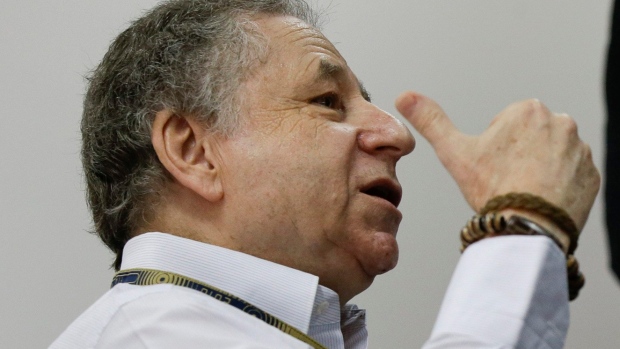Apr 2, 2016
F1's qualifying format to be reviewed
Formula One's much-criticized new format of qualifying will be reviewed again on Sunday, and Jean Todt, chief of the sport's governing body, says he's optimistic there will be the required unanimous agreement to make alterations.
The Canadian Press

SAKHIR, Bahrain - Formula One's much-criticized new qualifying format will be reviewed again on Sunday, and motor sport chief Jean Todt says he's optimistic about getting the unanimous agreement needed for changes.
Under the new system, first used in the season-opener in Australia and again at the Bahrain Grand Prix on Saturday, the slowest driver is eliminated on a rolling basis. In an embarrassment for the series, it produced an anticlimax in Melbourne as drivers accepted elimination rather than use up tires trying to better their times.
A meeting of the F1 Commission in the lead-up to Bahrain failed to get unanimous agreement on how to change it but the FIA has called another meeting for Sunday.
"I am optimistic we will get unanimous support tomorrow," FIA president Todt said. "We will have learned more from qualifying (in Bahrain). I felt it was necessary to give one more chance to this form of qualifying before reverting back to 2015."
Todt's preferred option was to maintain the new rolling elimination format for the Q1 and Q2 segments, with a slight increase in the amount of track time before the eliminations kick in, and then revert to the old qualifying system for Q3 in which the top grid spots are determined at the end of the session.
Todt said an alternative solution is an extra set of tires in Q3 to make teams less preoccupied with keeping fresh rubber for the race. FIA race director Charlie Whiting spoke to series tire supplier Pirelli after the Australian GP about whether that was possible and was told it could not be done in time for Bahrain. It would also incur additional costs on teams if that rule was introduced in subsequent races.
Mercedes team principal Toto Wolff said the system must be retained or there should be a full reversion to the old system, as any compromise or entirely new qualifying format risked being even worse.
"We are not in a position, after we have changed it twice, to experiment in (the next race) in Shanghai — we will look like fools," Woolf said. "We have a duty to simplify the sport, rather than add complexity."
